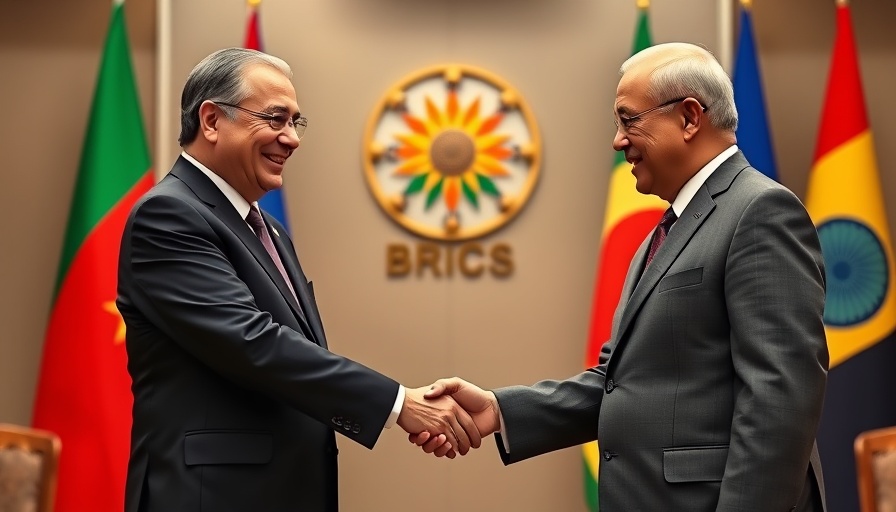
BRICS Summit: A Call for Global Inclusivity Amidst Disorder
As leaders from the BRICS nations converge in Rio de Janeiro, their meeting exudes an air of urgency that transcends mere diplomatic discussions. With over 17,000 police and military personnel on guard, the summit reflects not just the significance of the occasion, but the turbulent global climate. Warnings from Brazil's presidential foreign policy adviser resonate with historical echoes, suggesting we might be teetering on the edge of a chaotic world, reminiscent of pre-World War tensions.
In the video 'BRICS leaders meet in Brazil amid 'world disorder' warnings,' the discussion highlights the precarious global political landscape that prompted this important gathering.
Expanding Influence of BRICS
Initially composed of Brazil, Russia, India, China, and South Africa, BRICS has now grown to eleven countries, including Iran, Ethiopia, and Egypt. Despite its increase in membership, the bloc is neither a military alliance nor a cohesive trade block. However, its goal of advocating for a multipolar world and amplifying the voice of the global south in international affairs remains steadfast. One of the forum’s notable achievements is the establishment of a development bank tailored for emerging economies, presenting an alternative to longstanding Western financial institutions like the World Bank.
The Challenge of Unity
Significantly, the absence of key figures like Russia's Vladimir Putin, who will attend virtually due to his international legal challenges, and China’s president, who has opted out for the first time, raises questions about the bloc's ability to present a united front. Their low attendance might undermine Brazil’s ambitions to solidify its leadership role within BRICS. Additionally, divergent political systems and interests among members could create barriers to achieving the collective action necessary to challenge Western hegemony effectively.
As this summit addresses critical issues such as healthcare, climate change, and technological cooperation, the future of BRICS hangs in the balance. Are they prepared to bridge the gaps between their vastly different nations to realize a world where developing countries are prioritized? Only time will tell.
 Add Row
Add Row  Add
Add 




Write A Comment